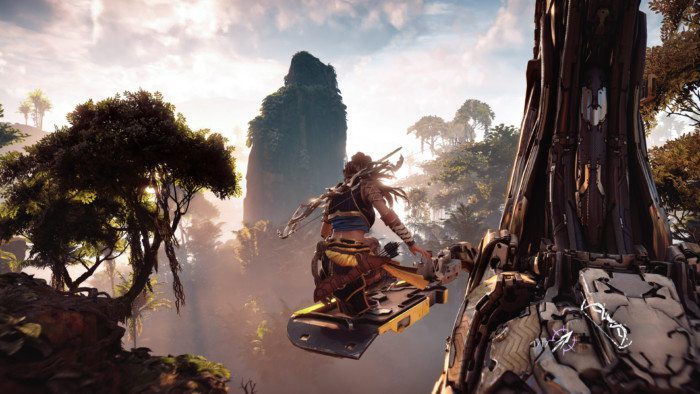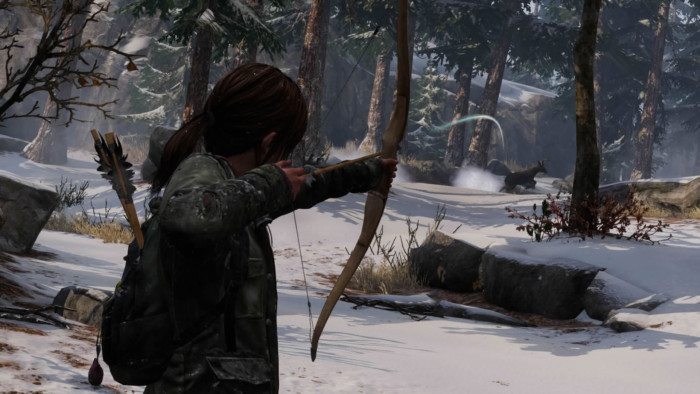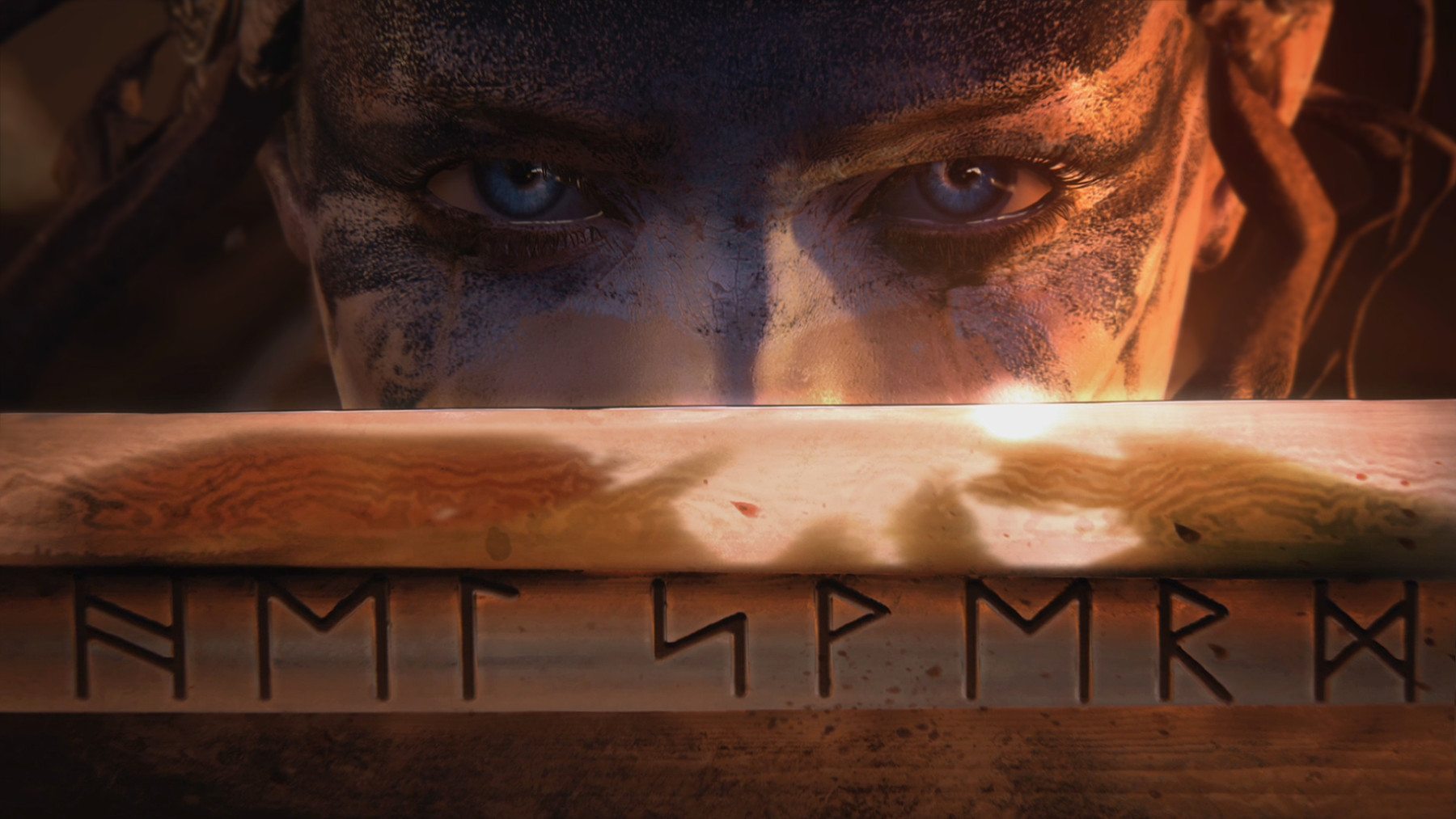Are sisters playing it for themselves?
Upon reading the response to the survey conducted by The Boar on the gaming community at Warwick, I found myself disappointed with the gender split. A measly 20.5% of the responses answered female, with 74.4% identifying as male, 2.6% preferring not to say, and the last 2.6% responding as other. It seemed strange that even here, the millennial student campus, games are still very much dominated by males.
Yet beyond the appearance of a hyper-liberalised snowflake generation wrapped in trigger warnings, there lies a community still, in part, inaccessible for women. To understand why the industry and wider community still feel like a men’s club you need to look below the surface and pay attention to the misogyny that continues to insidiously prevail.

Crouching tiger, hidden misogyny. Image Credit: Guerrilla Games/IGDB.
It’s hard to forget the vitriol behind the threats of violence leveled at women during the event commonly referred to as #Gamergate. This explosion of misogynistic abuse came in the wake of a campaign to, surprise, surprise, draw attention to the sexism and harassment that women who are part of the gaming community and industry have encountered. Video game developer Zoe Quinn and media critic Anita Sarkeesian are but a few victims of this treatment and as a result of their work have received constant threats of violence, murder, and rape. The message was clear. Women are somewhat tolerated in gaming but are strictly to be seen and not heard. Any attention they draw to themselves is to be met with threats of harassment, rape and many other forms of imaginative violent and/or sexual images which those behind #Gamer Gate could muster. This level of abuse is something I have fortunately never experienced and the same is probably true of the majority of the female gaming community. However, it is understandable that any women could look back on such an event and feel uneasy or out of place in such a volatile environment. Perhaps even, as shocking as this sounds, feel a sense of loyalty towards their sisters who were affected by this abuse.
Nevertheless, the reactions I often get from men when they realise that I am a, quote, ‘gamer’ are certainly different to the reactions they show when talking to other men about games. Most of the time I believe it is well intended. An exclamation of ‘oh’ or ‘wow,’ often followed by a twist of the head and a moment of silence as they take it all in is common. There is almost always a visible boost to my social standing, as I acclaim a level of respect on men’s terms; a charmed reaction to a woman as she plays at masculinity. ‘What games do you play?’ is almost always the follow-up question , and there is nothing wrong with this question; however what generally follows is an unwillingness to go deeper into the subject of any particular game or theme, perhaps as they are unsure of whether I am capable of grasping a game beyond its cover or the buzzwords plastered across the back. When they do go further, the conversation usually slides into a monologue, as they talk you through their favourite moments and memories. It’s quite something to have the final mission of Dishonored mansplained to you after you have informed them that you have played every installment of the series numerous times.
It’s understandable that any woman could look back on #Gamergate and feel uneasy or out of place in considering themselves a part of any gaming community.
That’s not to say that all interactions have been a patronising talk-down. Of course, I have had meaningful and interesting discussions with men about the games that we play. Even conversations driven by feministic deliberations regarding the portrayal of women and of gender in video games. These are however fewer and farther between than I would certainly like.
It doesn’t help that the industry is very much a male-dominated affair. Computer sciences, coding, and the arena of STEM more generally can be notoriously off-putting to women. According to the Higher Education Statistics Agency, 19% of Computer Science students in UK universities are female, down 5% in as many years. Looking over the creative heads and industry celebrities brings to focus almost exclusively on male faces. Although there is greater balance in indie companies, these by their very nature often struggle to receive the recognition and audience they often deserve. The same complaint can and should also be directed towards the lack of BAME and LGBT+ people in STEM and by extension the games industry. This underrepresentation is evident in gaming characters. When they are present they are often depicted as mere stereotypes or the butt of the joke. For technology’s future, video games can be extremely regressive places.

Actual shot of Matilda Smith skewering industry sexism in the snowy wastes of the Boar’s pages. Image Credit: Naughty Dog/PressXtra.
The lack of female representation within the industry is but another side to this disappointing tale. Despite protests to the contrary, male protagonists prevail in every direction and female characters so often lack their own validity, agency, or individual merit that I find myself sighing as I play. Some beautifully written female characters do stand out: Senua from Hellblade: Senua’s Sacrifice, Alloy from Horizon Zero Dawn, Ellie from The Last of Us, Chloe and Nadine from Uncharted: the Lost Legacy, do prevail. They are proof of the possibility and profitability of strongly written female characters, which suggests that gamers of all genders aren’t put off by seeing girls at the front. Furthermore, a 2016 study of 571 games found that overly or exclusively sexual depictions of women in games are much fewer than during the peak period of 1990 to 2005. These are surely optimistic signs for the industry.
So is why did Rockstar claim that to explore the “concept of masculinity” in Grand Theft Auto 5 there could not possibly be a female protagonist or main character for that matter? Why did an exploitative trailer for the Tomb Raider reboot linger for so long and so unnecessarily over Lara Croft’s body as a goon groped her? Why does Kojima’s vision of a perfect female soldier rely on being scantily-clad and completely silent, with a healthy rape attempt to score the hat-trick? Why do beloved Super Mario titles continue to recycle the same save-the-princess plot lines? Because it’s easy. Why spend valuable time and resources writing complex female characters when damsels, sexualization and often a worrying and violent combination of the two will do?
Despite protests to the contrary, male protagonists prevail wherever you look and female characters are so often lacking in their own validity, agency, or individual merit that I often find myself sighing at the screen as I play.
These frustratingly docile or hyper-sexualised roles may be subsiding over time, but there still exists a casual and frustrating misogyny within the industry. Well-written, textured female characters are applauded because they are the exception. They are the few anomalies that are used to cover-up the cardboard cut-outs still common to most video games every time this conversation comes around. Although these depictions are constantly criticised by men and women alike, they continue to persist with little or no repercussions besides an eye roll and perhaps a slap on the wrist. We all remember the mass boycott of Assassin’s Creed after the series reduced Catarina Sforza, a real historical figure and one of the most ambitious and tenacious women of her time, to a serial damsel in distress and a brief sexual encounter. Except no we don’t because that never happened. The series continued to sell extremely well, with regular annual additions. Women, however, are still part of the commercial sector and believe it or not are more likely to invest in a product that doesn’t constantly parade misogynistic versions of themselves around in front of them. The championing of better female characters in video games, with more encouragement and outreach for women to be employed into the industry, could have huge implications both on the profitability of video games and on the attitudes of the gaming community itself. Perhaps Rockstar would lose some customers who demand prostitute murder in the games they play, but personally, I wouldn’t miss those individuals and they would receive a great more besides from the purchasing power of their new found female players.
The survey is especially telling as it was directed directly at those who follow the game’s section of the Boar rather than the general student population. Though the gender split in all games, including more casual and accessible ones especially on mobile gaming, may be about equal, women are still often unwilling to invest significant time or money into the industry. And with an industry that struggles to acknowledge us, and a community that seems unable to make it past our apparent novelty, is it any wonder that Warwick’s female students aren’t getting fully involved in gaming?

Comments (3)
Aw, this was an extremely good post. Taking the time and actual effort to generate a really good article…
but what can I say… I put things off a lot and never manage to get
anything done.
Maybe, just maybe there’s a simpler and more reasonable/rational reason than misogyny for why there are more men than women playing video games? Something like, I don’t know, women in general just aren’t interest in video games.
You say video games are inaccessible for women, this could not be further from the truth. Gaming is one of the most inclusive forms of media and entertainment on the planet, all you need to do is find a game and play it.
You want to know why men generally don’t want to talk to you about video games?
LOOK AT THE ENTITLED FEMINIST ATTITUDE THAT YOU GIVE OFF IN THIS ARTICLE !!!
I’ve got some shocking news for you, lady …
FEMINISM IS “MAN REPELLENT” !!!
Drop the “Entitled Feminist” crap and you’ll soon realize that more men would find you approachable and easy to talk to.